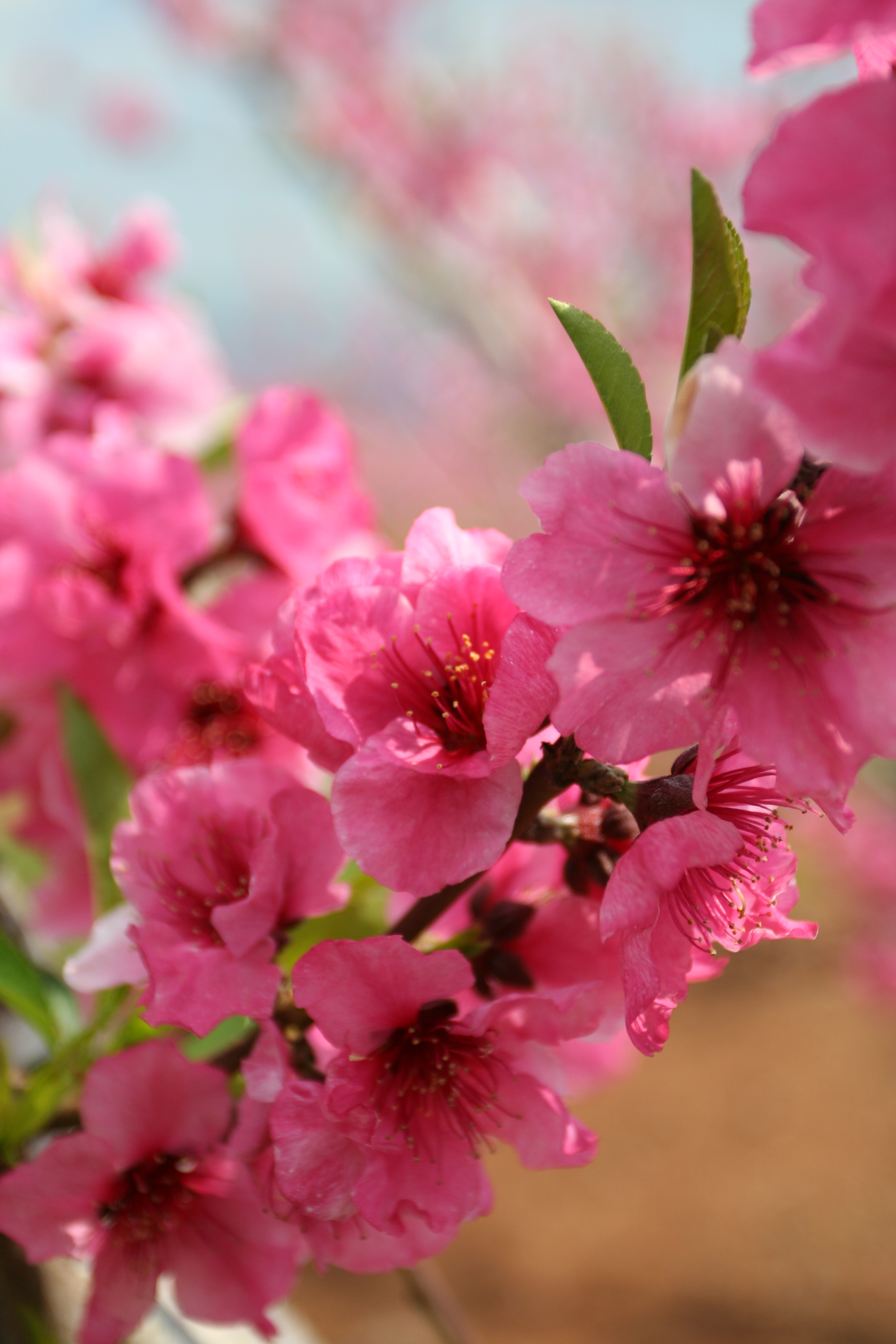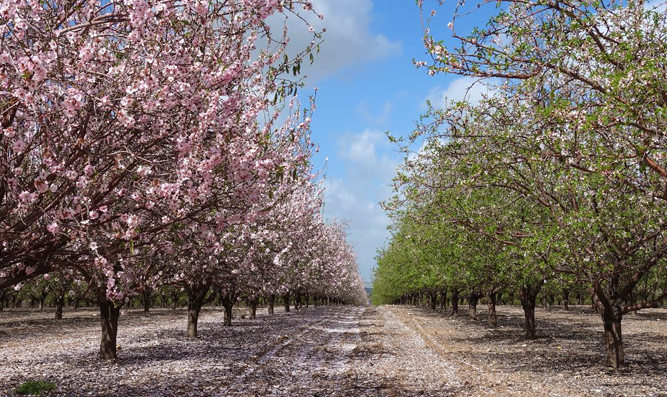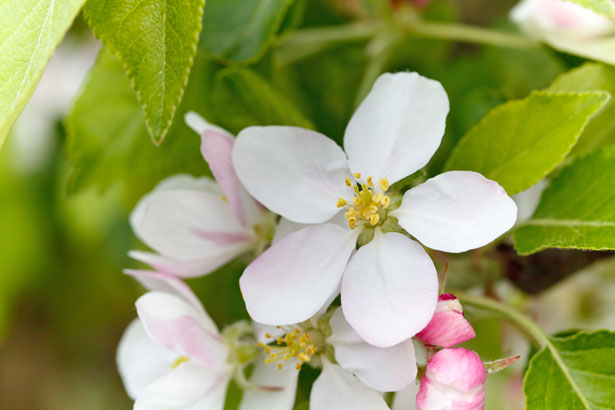

Right in the middle of Pesach cleaning we’re invited by the Creator of the Universe to forget about cabinets and crumbs for a while to venture forth to the great outdoors. And so we interrupt our annual roundup of pasta and popcorn to focus, instead, on the eternal signs that springtime has arrived.
Siddur in hand, we squint against the sunlight until we find them – tiny, white flowers spangled on an olive branch or waves of magenta peach blossoms flooding a hillside orchard.
“Every flower of the field yearns to be part of our tefilos (prayers)” so the trees actually “join us” as we say:
The best of us are compared to a fruit tree: “The righteous shall flourish like a date-palm…” (Tehillim, 92:12) and even the smallest tree in the orchard is protected by the Torah. (Devarim, 20:19). Like trees, we draw strength from our roots, we need water and nutrients to live, we’re renewed by the changing seasons, we bear fruit, and we grow upward — reaching toward the light.
…but even one is enough. (Teshuvos Halachos Ketanos 2:28) According to most authorities, the Birkhas Hailanos is made during daylight hours of any weekday in the month of Nissan (Sdei Chemed, Berachos 2:1 and Kaf ha-Chayim, 126:1). Not all fruit-bearing trees qualify. They cannot have been grafted and they need to be more than three years old.
The brachah is preferably recited on two different types of fruit trees, though even one type of tree is valid. The blossoms should be open, yet before the fruit appears (Chida, Moreh b’Etzba 198).
Similar to a woman’s obligation to bring first fruits — bikurim — to the Beis Hamikdash, this commandment is not considered “time-bound.” It is a “season-bound” opportunity for everyone, man or woman, to open all our senses, drawing inspiration from the harmony of nature that goes far beyond words.
Rav Abba taught: There is no greater revelation of redemption than that which the pasuk states: “And you, mountains of Israel, you shall give forth your branches and you shall bear your fruit for my people Israel, for they shall soon come.” (Yechezkel 36:8, Bavli Sanhedrin, 98a). The geulah, then, resembles the blossoming of fruit branches.
To understand what Rav Abba is telling us, consider the wording of the brachah itself: “…Whose world lacks nothing.” Meanwhile, in the blessing “borei nefashos” that we say after eating, we thank Hashem who fulfills the “lack” in His “living creatures”. So, is there a lack or isn’t there?
 Birkhas Hailanos holds the answer. This unique blessing reminds us of the distinction between Hashem’s creatures and Hashem’s world. Creatures have a sense of lack – we get hungry, thirsty, or lonely. But Hashem’s world itself has no lack.
Birkhas Hailanos holds the answer. This unique blessing reminds us of the distinction between Hashem’s creatures and Hashem’s world. Creatures have a sense of lack – we get hungry, thirsty, or lonely. But Hashem’s world itself has no lack.
This is the distinction between the state of galus — exile — and the state of geulah — redemption. When we focus only on our lack, we feel distant from Hashem. When we focus on His provision of what we lack, we feel His Presence, His love. As we say in Lecha Dodi on Shabbos evening: “Karva El nafshi, gealah — When Hashem is close to my soul, redemption!”
When we experience Hashem’s Presence through our senses, we’re rescued from exile in a powerful way. Through learning, praying, and doing mitzvos we bring our personal redemption closer. Our voice is a key to this process.
“They shall inherit the Land forever; the branch of My planting, the work of My hands, in which I glory” (Yishayahu/Isaiah 60:21). The surge of new life bursting forth in nature makes it possible for us to experience Hashem’s interaction with every detail of His creation. This reassures us that, ultimately, nothing is lacking.
Each one of us is “planted” by Hashem in the best environment for our soul to experience His kindness. Whenever we perceive His miracles “right in our own backyard”, the darkness of exile recedes.
As we say the blessing this year, may everything become possible again for the People of Israel who are “the planting of His hand”. And may each one of us blossom through giving voice to His miracles.

Sources: Berakhos 43b; Rambam (Berakhos 10:13); Rokeyach, p. 235; Ohr Zarua 1:179; Avudraham Berakhos; Tur and Shulchan Aruch O.C. 226; Siddur Rav Yaakov Emden; Chayei Adam 63.
To dedicate this shiur, click HERE.